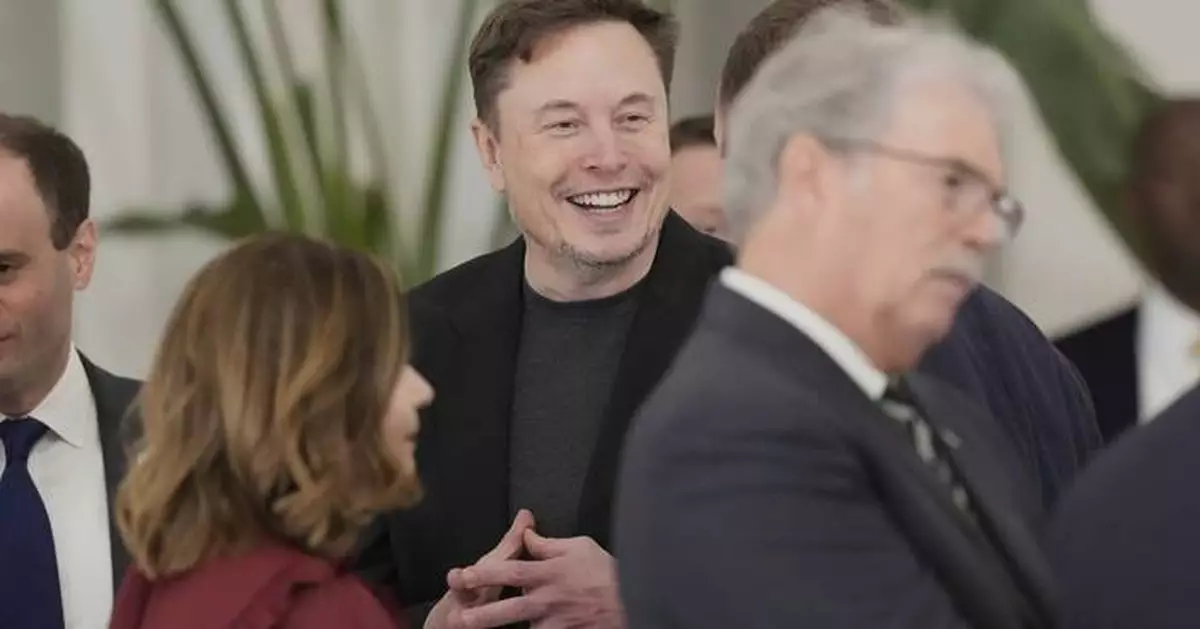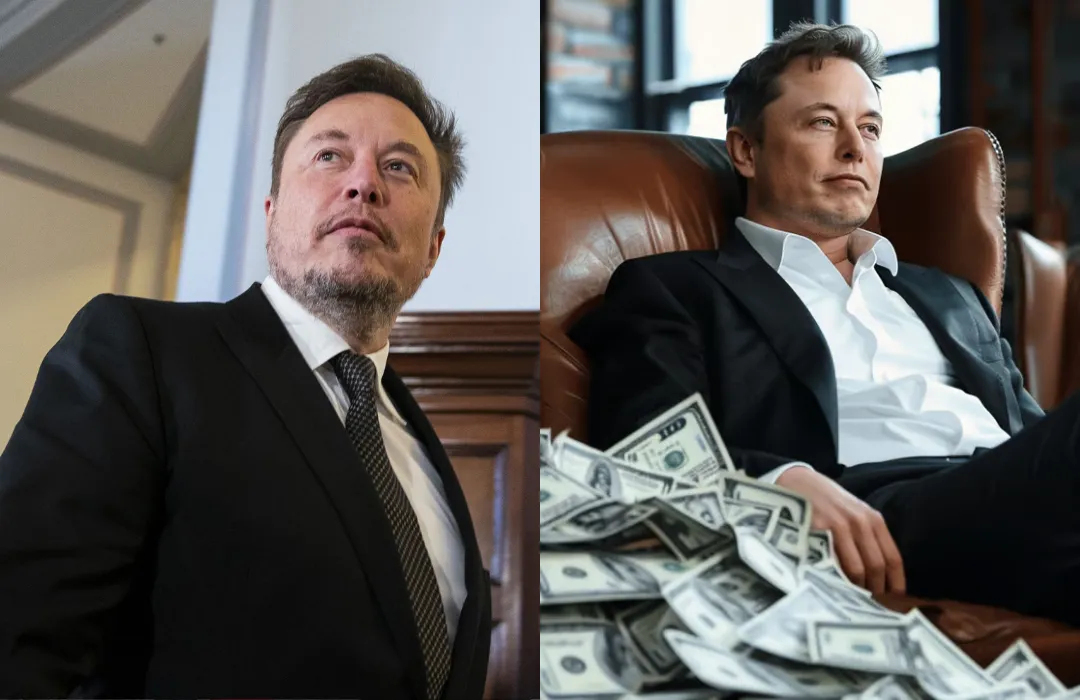
In a significant development highlighting the increasingly close relationship between the U.S. Defense Department and one of the world’s most influential technology entrepreneurs, Defense Secretary Pete Hegseth met with billionaire Elon Musk at the Pentagon on Wednesday.
This marked the second confirmed occasion that Musk, a prominent ally of President Donald Trump, has visited the Pentagon headquarters for a high-level engagement since Hegseth assumed his role.
The meeting underscores a growing partnership focused on integrating advanced artificial intelligence and cutting-edge technology into America’s military strategy for the 21st century.
Officials confirmed the meeting shortly after it took place, with Pentagon spokesperson Sean Parnell stating in an official release, “The Secretary met with Elon Musk and other members of the X AI team this morning.”
Parnell elaborated on the significance of this interaction by emphasizing the Department of Defense’s (DoD) ongoing commitment to collaborate closely with top executives from the artificial intelligence industry.
According to Parnell, this collaboration is essential to ensure that U.S. warfighters are fully equipped to face the rapidly evolving and complex threats of modern warfare.
The statement captured the Pentagon’s strategic vision of leveraging private sector innovation to maintain and enhance the military’s technological edge.
The Reuters news agency was the first to report on this meeting, signaling its importance not only within defense circles but also in the broader technology and business communities.

The timing and nature of the meeting raised interest given Musk’s multifaceted roles as CEO of SpaceX, Starlink, and his recent ventures in artificial intelligence under the X AI team banner.
Each of these enterprises holds or pursues multiple contracts with the U.S. Defense Department, positioning Musk as a critical partner in national security projects spanning satellite communications, space technology, and now AI development.
Adding a human element to the event, Hegseth’s pastor, Brooks Potteiger, took to the social media platform X (formerly Twitter) to share a personal observation.
Potteiger wrote, “It’s not every day you walk past Elon Musk en route to preach,” referring to the chance encounter with Musk at the Pentagon prior to a Christian prayer service held at the department on the same day.
The presence of religious gatherings at the Pentagon highlights an often overlooked aspect of military culture where faith and leadership frequently intersect.
Potteiger’s comment also hints at the normalcy Musk is beginning to establish within the Pentagon environment, moving from a tech outsider to an integrated figure in defense circles.
Elon Musk did not immediately respond to requests for comment on the meeting, maintaining his characteristic low profile on some issues despite his high public visibility.
Musk’s presence at the Pentagon, however, marks a remarkable evolution from the typical business-government relationship, as he now occupies a position where his companies’ technologies are deeply intertwined with national defense interests.

This meeting is the follow-up to an unprecedented first engagement in March, when Musk was granted a rare top-level briefing at the Pentagon. That initial meeting set a precedent, underscoring Musk’s emerging influence in the military-industrial complex.
At the time, media reports surfaced suggesting that Musk would receive classified briefings on secret U.S. war plans concerning China.
Both Musk and President Trump, along with other officials, swiftly denied these claims, with Musk dismissing the reports as “pure propaganda” and calling for legal action against those responsible for leaking sensitive information.
The controversy highlighted the delicate balance of information sharing between government secrecy and public scrutiny when private sector leaders become involved in defense planning.
The overlap between Musk’s commercial ventures and Pentagon interests is substantial. SpaceX, Musk’s aerospace company, and its satellite communications arm Starlink already hold several critical Pentagon contracts.
These contracts position Musk’s companies as key providers of advanced space-based communication infrastructure, which is vital for modern military operations and national security.
Starlink’s global broadband satellite constellation is especially valuable for secure, resilient military communications in diverse theaters of operation.
Beyond these existing partnerships, Musk’s vocal advocacy for innovation and the re-prioritization of Pentagon spending has attracted attention.
He champions the idea of streamlining defense budgets and redirecting resources toward cutting-edge technologies that promise greater efficiency and effectiveness.
This stance aligns with his broader Department of Government Efficiency (DOGE) initiatives, which aim to reduce waste and optimize federal government spending.
His involvement in government reform and defense modernization has made him a polarizing figure—celebrated by proponents of innovation and scrutinized by those wary of conflicts of interest between his public roles and private enterprises.
One prominent defense project under the Trump administration exemplifies the synergy between Musk’s companies and Pentagon goals: the Golden Dome missile defense shield.
This ambitious initiative involves deploying hundreds of sensors and satellite assets to detect and track incoming ballistic missiles.
Given SpaceX and Starlink’s capabilities in satellite technology and network deployment, they are natural contenders to provide the technological backbone for such a system.
The successful integration of Musk’s infrastructure could generate billions in revenue for his firms, while significantly advancing U.S. missile defense capabilities.
The financial prospects for Musk’s companies under Trump’s administration extend beyond just one program. As the government invests more in space and AI technologies, companies like SpaceX are positioned to capture a large share of federal defense spending.

This prospect of lucrative government contracts has raised questions about potential conflicts of interest, given Musk’s advocacy for government efficiency measures that simultaneously impact Pentagon budgets and operations.
The White House has previously addressed these concerns by stating that Musk would recuse himself from decisions where his business interests might conflict with his role in overseeing federal spending cuts.
This reassurance aims to balance the dual pressures of ensuring ethical governance while benefiting from Musk’s expertise and technological leadership.
Musk’s Department of Government Efficiency has indeed spearheaded significant budgetary cuts across multiple federal agencies, including the Pentagon.
These reductions reflect an effort to streamline government functions and promote fiscal responsibility. Musk’s recent announcement that he plans to substantially cut his political spending signals a strategic shift in his priorities.
It suggests that he is increasingly focused on advancing his business empire amid growing concerns from investors about the direction and stability of his ventures.
The renewed meeting between Secretary Hegseth and Elon Musk at the Pentagon marks a pivotal moment in the evolving relationship between private sector innovation and national defense.
Hegseth, a strong supporter of leveraging emerging technologies to strengthen military capabilities, sees Musk as an invaluable partner in this endeavor.

The collaboration between them symbolizes a broader trend where defense leadership embraces Silicon Valley-style innovation to tackle 21st-century security challenges.
This relationship also reflects the complex interplay between politics, business, and defense. Both Musk and Hegseth are known allies of President Trump, sharing a vision for America’s global strength rooted in technological superiority and efficient governance.
Their partnership could reshape how the Pentagon approaches modernization, budgeting, and industrial collaboration in the years ahead.
While some critics express concern about the mingling of commercial interests and national security, proponents argue that such alliances are necessary to keep pace with rapid technological change.
The integration of AI, satellite communications, and space technology into military operations demands close cooperation between government and private industry. Musk’s dual role as innovator and government advisor places him at the center of this transformative process.
Looking forward, the Pentagon’s engagement with Musk’s AI initiatives, particularly the X AI team, indicates a commitment to harnessing artificial intelligence for defense purposes.
The accelerating threat landscape, including cyber warfare and autonomous systems, requires cutting-edge solutions that Musk’s companies are uniquely positioned to develop.
The meeting also signals increased Pentagon interest in exploring AI applications that could enhance situational awareness, decision-making, and operational effectiveness.
Secretary Hegseth’s outreach to Musk reflects an understanding that the future of defense depends on adopting technologies that blur traditional boundaries between military and commercial sectors.
His leadership seeks to capitalize on private innovation while ensuring that America’s warfighters are equipped with the best tools to counter emerging threats.
The renewed collaboration between the Pentagon and Elon Musk is more than a simple business meeting. It represents a strategic alliance at the nexus of technology, defense, and governance.
The implications of this partnership extend beyond contracts and budget lines, potentially shaping the trajectory of U.S. military capabilities in an increasingly competitive global environment.
In conclusion, the second meeting between U.S. Defense Secretary Pete Hegseth and Elon Musk at the Pentagon highlights the growing embrace of private sector innovation within the defense establishment.
It underscores Musk’s rising influence as both a business leader and a strategic partner in national security. As the Defense Department faces evolving challenges in AI, space, and communications, the collaboration between Hegseth and Musk embodies a forward-looking approach aimed at securing America’s military edge in the 21st century.

This partnership, grounded in shared political and technological vision, promises to drive significant advancements in how the Pentagon integrates new technologies, manages budgets, and prepares the U.S. armed forces for future threats.



-1747207653-q80.webp)
-1748169793-q80.webp)
-1745646866-q80.webp)